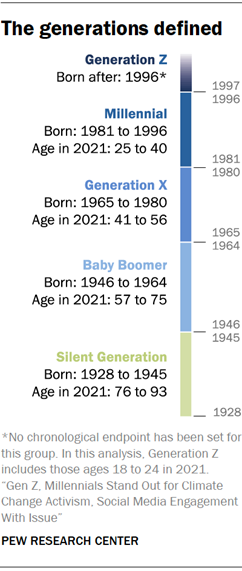
Does a company's commitment to corporate social responsibility (CSR) factor into your purchasing decisions?
More than ever before, consumers are pushing companies to be environmentally aware. In 2019, the Governance & Accountability Institute found that 90% of companies in the S&P 500 Index had published a sustainability or corporate responsibility report that year.
CSR is a broad concept that dates back to the 1930s. Today, there is no one-size-fits-all CSR model.
For consumers, understanding CSR can help you support companies that are aligned with your personal values. For organizations, setting—and achieving—CSR goals is a way to show your business is doing what's right for profitability, the environment, and society.
How is CSR Defined?
Exactly what “socially responsible” means varies from company to company. However, CSR is typically broken down into four categories: environmental, philanthropic, ethical, and economic responsibility. This model is also referred to as Carroll's Pyramid.
- Environmental: reducing pollution, increasing use of renewable energy, and offsetting negative impacts.
- Ethical: ensuring fair treatment of all stakeholders from employees to customers—for example, through initiatives such as responsible sourcing of materials and creating an equitable work environment.
- Philanthropic: dedicating a portion of earnings to charitable giving that doesn't directly relate to a business.
- Economic: linking financial decisions to a company's commitment to do good in the above areas.

Researching Real Corporate Social Responsibility
How can you tell if a company is actively engaged in CSR? First, look at its website to learn about how it sets sustainability goals and how it measures progress. Determine if the content provides a thorough review of how sustainability is incorporated throughout the supply chain, including how a consumer's purchasing decisions make an impact.
Another solution is to identify if the organization supports the UN's Sustainable Development Goals (SDGs) and outlines a plan for incorporating the Ten Principles of the UN Global Compact in their operations.
Who Cares About CSR?
Consumers around the world want to live more sustainably and companies are responding, something that the World Economic Forum has referred to as an “eco-wakening.”
Being an environmentally-conscious consumer starts with learning more about how companies are working toward their CSR goals.
More than half of the American population is part of the Millennial generation or younger. Today's young people are growing up with firsthand experiences of the impacts of climate change and represent the socially-conscious consumer of the future.

Benefits of Corporate Social Responsibility
An effective CSR program can have a positive impact on companies, employees, and consumers. For example, gaining efficiencies by reducing packaging or using less energy can help companies cut costs while also benefiting the environment.
CSR can also create a competitive advantage in the marketplace. Many consumers want to support companies that have a reputation for being good corporate citizens. In 2019, a national survey found that 70% of consumers wanted to know what the brands they support are doing to address social and environmental issues, and 46% paid close attention to a brand's social responsibility efforts when they buy a product.
On the flip side, another 2019 survey found that 25% of consumers had a “zero tolerance” policy toward companies that embrace questionable practices on the ethical front. A business that engages in socially or environmentally harmful behavior risks losing a significant number of potential customers.

Engage Your Workplace in Corporate Social Responsibility
CSR can help companies attract and retain talent in their workforce. Research by NEEF found that nearly 90% of employees engaged in their company's sustainability work say it enhances their job satisfaction and overall feelings about their workplace.
"When a company engages their employees with sustainability actions that align with their CSR goals, it leads to better business outcomes and empowers team members to live more sustainably at work, as well as at home and in their communities," said Nick Bradford, Program Director for Research & Innovation at NEEF.
Interested in integrating environmental and sustainability programs at your own workplace? NEEF's employee engagement resources are designed to help you establish or enhance corporate sustainability goals. There are many examples where companies saved money, improved efficiency, built stronger customer relations—or succeeded in doing all three— through these programs.
You can also contact our team to discuss implementing an employee engagement campaign at your organization.


